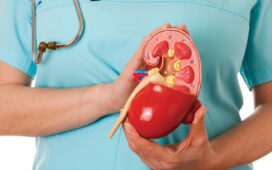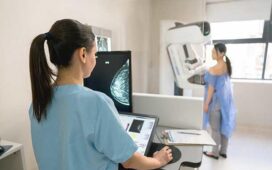The gallbladder is a small organ in the body’s digestive system that resembles a pear. It is found under the liver, which stores and releases a fluid known as bile, a mixture of cholesterol, bile salts, and bilirubin. The liver produces this fluid, helping it digest the fats you ingest from your food. The gallbladder’s primary function is to store the bile and release it into the small intestine.
Gallstones are solidified deposits that form in the gallbladder. They can be as tiny as a particle of sand or the size of a golf ball. They can develop at any time, with some having a single gallstone and others with more, appearing simultaneously. For many who experience the symptoms of gallstones, the option for gallstone surgery in London may be the best. Treatment is vital, especially when symptoms are severe. Neglecting to address the problem can cause severe problems and affect the gallbladder and pancreas. For example, the gallbladder may become inflamed, or a patient may develop pancreatitis because of blockages caused by gallstones.
Causes of gallstones
Gallstones may be linked to the chemical imbalance of the bile within the gallbladder. Although research has not yet been able to determine why this imbalance occurs, some theories include the presence of excessive cholesterol in the bile, concentrated bile resulting from a full gallbladder, or too much bilirubin. When there is a presence of excessive cholesterol in the bile, it can develop cholesterol stones. These solid stones occur when the liver produces more cholesterol than the bile can manage to break down. A full gallbladder cannot perform its function of emptying bile, making it more concentrated and eventually forming hardened stones. Too much bilirubin, a chemical produced throughout the regular breakdown of the body’s red blood cells, may also result in stones. Certain health conditions like liver problems or blood disorders may contribute to the overproduction of bilirubin, which may keep the gallbladder from breaking it down.
Symptoms
Gallstones can make you experience pain, mainly on the upper right side of your abdomen or in the middle of your stomach. Some people can feel the pain after eating fatty foods, though it may occur randomly, lasting for several hours. Without treatment, you can experience several symptoms, which include high fever, increased heart rate, jaundice, diarrhoea, and loss of appetite. You can also experience itchiness of the skin and feel confused. The symptoms of gallstones are similar to those of infections or inflammations of the gallbladder, pancreas or liver. Additionally, they can also be a sign of pancreatitis or appendicitis. The best course of action is to seek medical advice from an experienced gallstone surgeon in London for the best course of treatment for the condition.
Although there is no sure way to prevent the development of gallstones, there may be something that appears to have a significant part in how they are formed. The cholesterol from the food you eat can contribute to gallstones, so limiting your intake of food containing excessive saturated fats would be best. A healthy diet can help reduce the risk of developing gallstones. It would also be best to check with a gallbladder surgeon in London, should you experience symptoms.
Image: https://www.pexels.com/photo/woman-suffering-from-a-stomach-pain-5938362/







